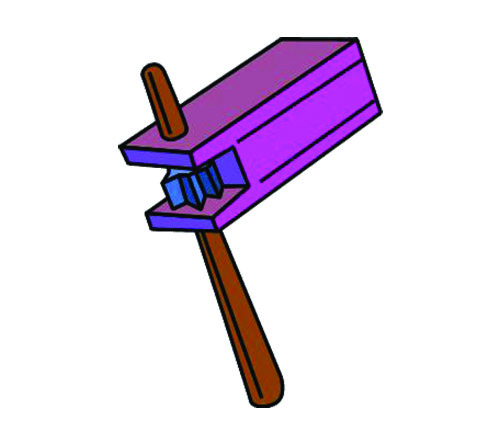
The Torah commands us to erase the memory of Amalek. The nation of Amalek did not fight the Israelites in a conventional manner. Normally, when countries go to war, they have their professional soldiers fight each other. They do not act dishonorably and exclusively target unarmed civilian populations. Amalek was different. Amalek struck the weak and feeble civilians who straggled behind. In doing so, their aim was to demoralize the new nation of Israel by striking at the women, children and elderly. In short, they were the terrorists of their time.
Next week we will be celebrating the holiday of Purim. Haman was a descendant of Amalek and was the villain of the epic tale. It has become a Jewish tradition that when the name of Haman is mentioned while reading the megillah, the reader pauses while the listeners make noise and jeer Haman’s name derisively. This fulfills the midrash that suggests we blot out the name of Amalek in this manner, as quoted by R’ Avraham Stone.
The Sefer Hamanhig tells us that centuries ago, the children in France would take stones and write Haman’s name upon them. They would then bang the stones so as to erase his name. This would make noise and was sometimes destructive, as these children would sometimes bang the stones against the walls of the synagogue.
R’ Yaakov Emden wrote that he observed his father, the Chacham Tzvi (1656-1718), bang his shoes to make noise when Haman’s name was mentioned. Some people write Haman’s name on the soles of their shoes and scuff them while banging their shoes. The Tanya Rabosi suggests that we break plates.
Not everyone felt comfortable with this custom. The Maharil (1365-1427) objected to the noise and the lack of decorum that was taking place when individuals made noise at the mention of Haman. The Sefer Minhagim of Worms (1566) directed the people not to bang when Haman’s name was mentioned since it would be disturbing. The rabbis of Izmir, Turkey (1874), issued a proclamation forbidding banging at Haman’s name because they did not want to possibly provoke the goyim (non-Jews).
In the end, however, we follow the rulings of the Levush (1530-1612) and the Rama (1520-1572) who permit and encourage us to make loud noise at the mention of Haman’s name. Chabad custom limits this noise making to only those times when Haman’s name is mentioned with a modifier, such as “Haman HaAggagi.” “Gragger” noisemakers are traditionally used in synagogues today to make noise.
The actual nation of Amalek may no longer exist. However, their ideology and tactics still abound. Jews are harassed and targeted for violence all over the world. Jewish college students routinely face the virulent confrontation by anti-Semitic proponents advocating the BDS movement.
In the face of this, we have to ask ourselves what the proper reaction should be. Should we follow the example of rabbis of Izmir and not make waves? Should we go about business as usual? The answer will become evident when we go to shul next week to listen to the megillah. When the congregants make noise at the mere mention of the name of Haman, whose tale took place back in the year 473 BCE, we need to also think about the modern-day Amalakites who are terrorists themselves or are states that sponsor terrorism. We need to remind ourselves to make as much noise as possible. We need to speak up and denounce them whenever possible. In this day and age of readily available social media there is probably no excuse not to.
May we take comfort by the words in Shemos (17:16) that promises us that Hashem, Himself, will fight the forces of Amalek in each and every generation wherever it raises its ugly head. Ultimately, we as a Jewish people will surely prevail.
Rabbi Dr. Avi Kuperberg is a forensic, clinical psychologist in private practice. He is president of the Chai Riders Motorcycle Club of NY/NJ. He leads the Summit Avenue Shabbos Gemara shiur and minyan in Fair Lawn, NJ, and is a member of the International Rabbinical Society. He can be reached at [email protected].













